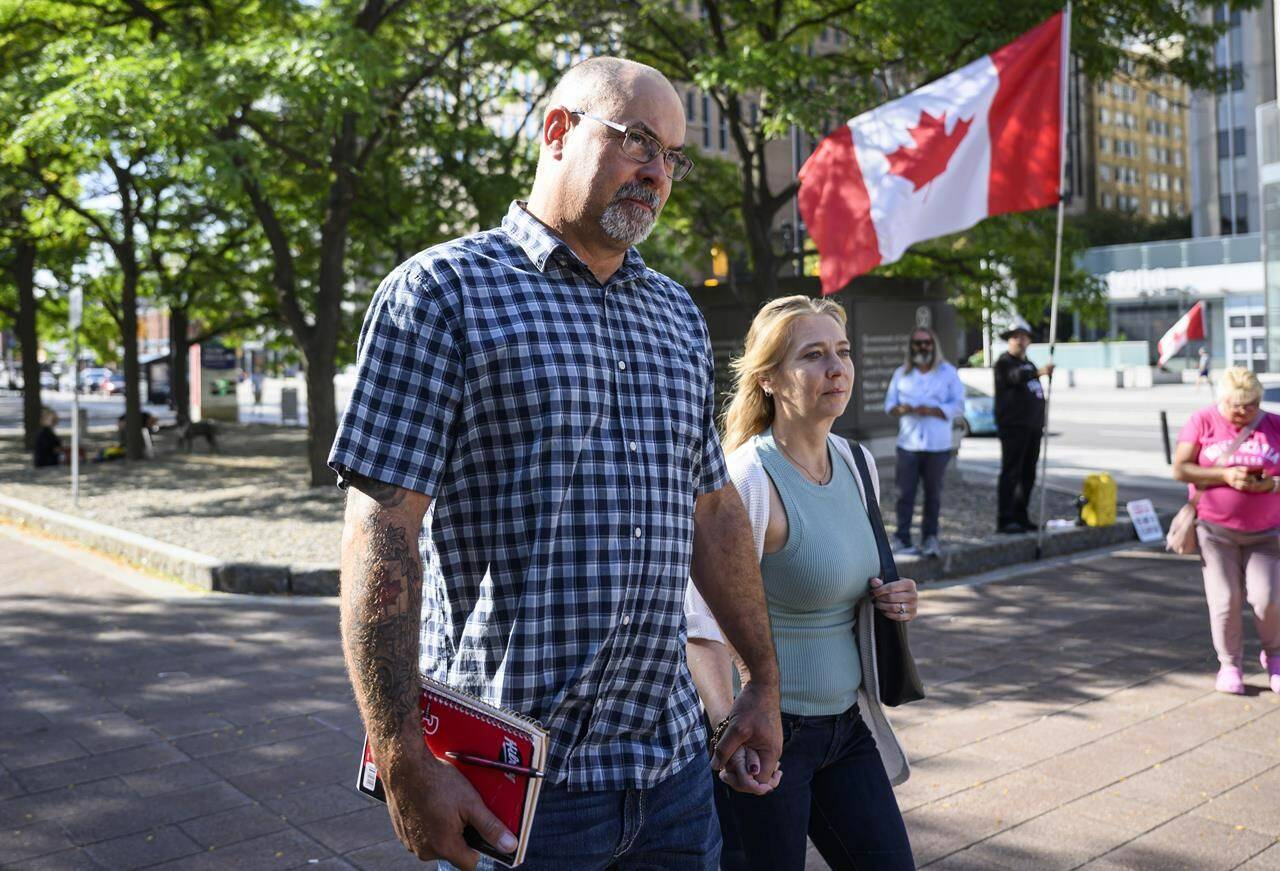The trial for “Freedom Convoy” organizer Tamara Lich heard Wednesday that she was the president of the corporation formed to manage donations to the protest, and some considered her president of the entire movement.
A courtroom scattered with supporters watched several videos during the day, including recordings of lengthy press conferences hosted by spokespeople during the protest, though neither of the organizers on trial featured very prominently.
In one, Lich identified herself as an organizer of the convoy, but a fellow organizer, Ben Dichter, said Lich was really the “president.”
“She’s so modest,” he said.
A federal inquiry into the government’s use of the Emergencies Act to end the protests heard last year that a core group of organizers formed “Freedom Corp.” to manage donations under the direction of their lawyer at the time, Keith Wilson. Lich was listed as president of the corporation.
She and Chris Barber were among those who organized a convoy of trucks that travelled to Ottawa in early 2022 to protest COVID-19 public health measures and call for Prime Minister Justin Trudeau to step down.
They both face mischief and several counselling charges, including mischief, intimidation and obstructing police, for their role in the demonstrations that blockaded city streets for three weeks.
The press conferences were among dozens of social media posts and messages compiled by Ottawa police Sgt. Joanne Pilotte, who has been on the stand for several days.
The Crown will ask the judge to use the social media content to “assess the strength of (Lich’s) voice,” Crown counsel Tim Radcliffe told the court Wednesday.
The defence is arguing the videos should not be admitted as evidence in the trial, which is being heard by a judge.
Lich’s lawyer, Lawrence Greenspon, has said that his team plans to argue that much of the proposed evidence taken from the “Freedom Convoy 2022” Facebook page is irrelevant to the charges.
Radcliffe said statements made by others on the Facebook page help to situate the influence Lich and Barber had.
“Their statements don’t exist in a vacuum,” Radcliffe told the judge. “The context is critically important for you to appreciate.”
The lawyers are expected to argue their position on the admissibility of the Facebook evidence later in the trial.
In cross-examination, Barber’s lawyer Marwa Younes took the court through several videos from Barber’s TikTok account, BigRed19755, where he called for protesters to behave peacefully and respect police.
“There’s a code of ethics we’re going to have to follow, we want this done properly,” he said in a video posted before the protest on Jan. 20, in which he vowed protesters wouldn’t leave until federal and provincial COVID-19 vaccine mandates were lifted.
In a TikTok video from Feb. 1, a shirtless Barber urged protesters to remain peaceful. He said the last thing the protest needed was an insurrection in the vein of the Jan. 6, 2021, attack on the United States Capitol Building in Washington, D.C.
“That’s my biggest fear.”
Pilotte said she didn’t choose which videos to download as part of the investigation. She was directed to specific videos by Ottawa police Det. Chris Benson.
Barber did not appear in the videos shown by the Crown Wednesday, though the Crown hopes to prove that he and Lich worked together so closely that evidence against one of them would apply to both.
The press conferences from Feb. 6 and 9 were streamed live on Facebook, and feature Lich and other prominent spokespeople taking questions from independent media outlets.
Both videos feature organizers sitting on a couch in what appears to be a hotel room. Lich was seen sitting in the centre of the frame, but she spoke very little in either video.
Dichter and others spoke about how the protest was putting pressure on governments to change public health measures, how they expected police to respond, and their distrust of “legacy media.”
Lich left the frame half an hour into the 75-minute video from Feb. 9.
READ ALSO: Organizers Tamara Lich, Chris Barber facing charges of mischief and obstructing police

